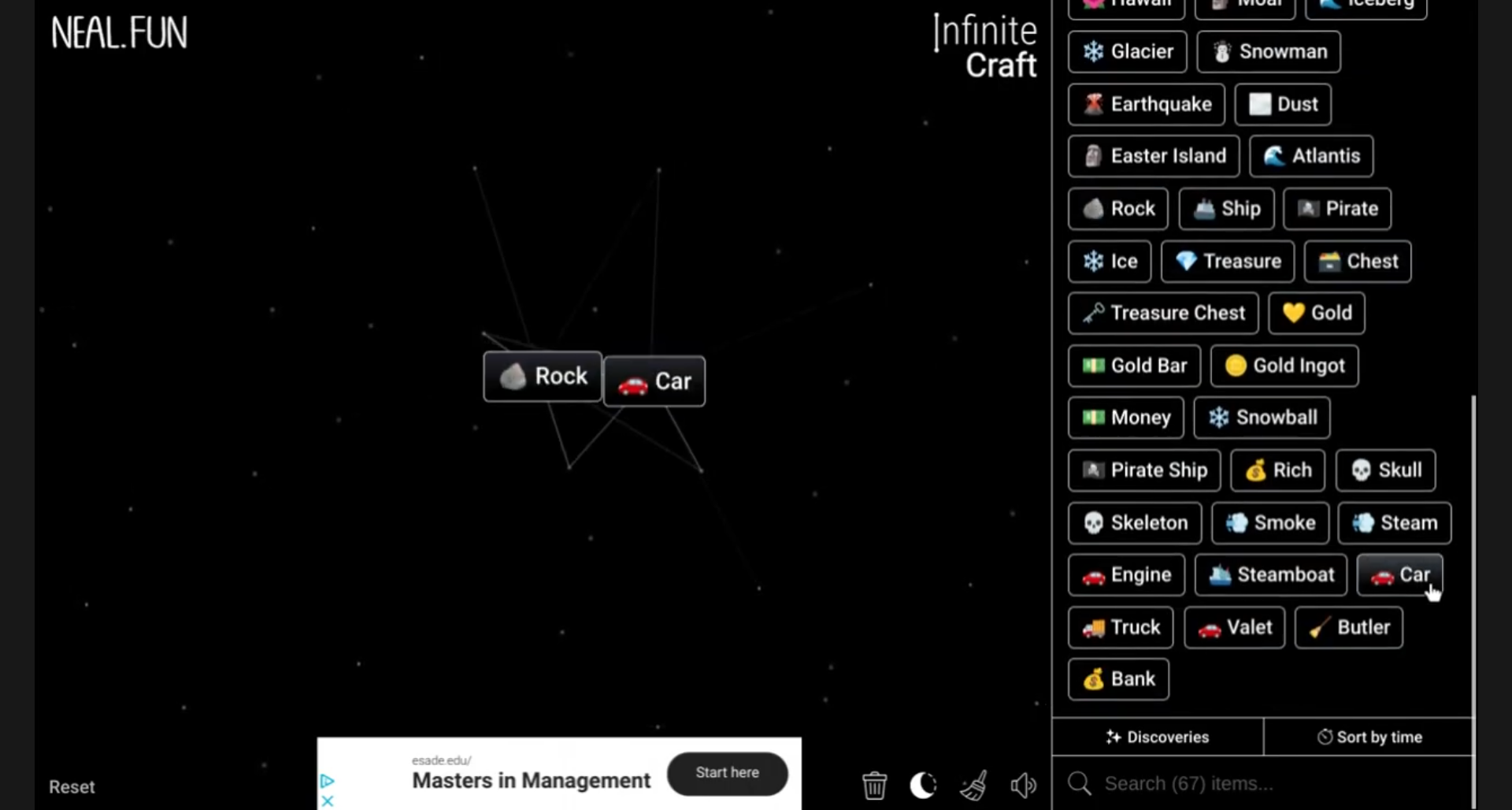Creativity is at the heart of Infinite Craft, a world where players can build anything from simple houses to elaborate structures inspired by various cultures. One of the most captivating themes for building is Japan, renowned for its harmonious architecture and deep-rooted cultural significance. This article serves as a meticulous guide for players eager to uncover how to make Japan in Infinite Craft, providing insights into architecture, culture, materials, and practical tips for an authentic experience.
Understanding Japanese Architecture and Culture
Key Characteristics of Traditional Japanese Architecture
To successfully replicate Japanese elements in your build, it’s crucial to understand the foundational aspects of traditional Japanese architecture. Key features include:
- Use of natural materials: Traditional Japanese structures prominently feature wood, bamboo, and paper, reflecting a deep respect for nature.
- Sliding doors: Elements such as fusuma (sliding doors) and shoji (screen doors) are essential, allowing easy transition between indoor and outdoor spaces.
- Elevated floors: Homes often include tatami mats, which provide cushioning and a unique aesthetic.
- Roof styles: Curved and tiled roofs are iconic, adding elegance and beauty to structures.

Importance of Nature in Japanese Culture
In Japanese culture, nature is more than just a background; it’s a central element that encapsulates philosophy and beauty. When exploring how to make Japan in Infinite Craft, consider these aspects:
- Integration of gardens: Zen gardens, filled with rocks and minimalist vegetation, often include water features which symbolize purity.
- Symbolism in landscaping: Each element in a garden has profound significance, reflecting the beliefs and traditions of Japanese culture.
Notable Japanese Structures to Consider
When dreaming about your Japanese build, consider the following structures for inspiration:
- Shinto Shrines: Simple yet profound, often made from natural materials and surrounded by nature.
- Buddhist Temples: Known for intricate designs and tranquil gardens.
- Castles: Like Himeji Castle and Nagoya Castle, these structures blend beauty and defense.
- Traditional houses: Minka houses showcase functional living spaces that harmoniously blend with their environment.
Planning Your Japanese Build
Gathering Inspiration
Start your journey on how to make Japan in Infinite Craft by gathering inspiration. Explore various Japanese cultural references, from anime to video games, and research famous landmarks such as temples and gardens to visualize your build.
Sketching Your Design
Once you have gathered ideas:
- Create a blueprint: Sketch your layout, ensuring it incorporates key elements of Japanese architecture.
- Determine the scale: Consider the proportions of your structures in relation to one another.
- Choose the type of structure: Decide if you want to build a home, shrine, or a garden.
Building Materials and Tools in Infinite Craft
Selecting the Right Blocks
Using the right materials is essential for achieving an authentic Japanese aesthetic. For your builds, consider these options:
- Wood: The primary material for creating structures.
- Stone: Ideal for pathways, foundations, and landscaping.
- Clay: Useful for creating decorative elements.
Useful Crafting Recipes
In addition to the materials you choose, consider crafting specific items that enhance your Japanese build:
- Doors: Craft sliding doors or gates for an authentic appearance.
- Decorative elements: Create lanterns and fences that reflect traditional aesthetics.
Step-by-Step Process to Create Key Structures
Building a Traditional Japanese House
Start building your traditional Japanese house by following these steps:
- Foundation and layout: Lay a solid foundation with wood or stone blocks, considering an elevated floor.
- Roof construction: Create a curved roof using sloped blocks for a traditional look.
- Interior layout: Use tatami mats for flooring and incorporate sliding doors for room transitions.
Creating a Shinto Shrine
To build a Shinto shrine:
- Entryway design: Start with a distinctive torii gate at the entrance.
- Main shrine structure: Construct the honden as the focal point, keeping it simple yet elegant.
- Landscaping considerations: Add stone pathways, lanterns, and gardens around the shrine for serene ambiance.
Designing a Zen Garden

Creating a Zen garden involves careful planning:
- Layout and design principles: Use symmetrical designs with a focal point.
- Choosing plants and rocks: Incorporate rocks, gravel, and minimalist plants to evoke tranquility.
- Incorporating water features: Design small ponds or streams that enhance the natural feel.
Incorporating Cultural Elements
Adding Traditional Japanese Decorations
Enhance your build with authentic decorations:
- Hanging lanterns: Used for illumination and to create a warm atmosphere.
- Decorative screens: Incorporate shoji screens for separation and style.
- Sculptures: Add items like Buddha statues or stone lanterns to deepen cultural appreciation.
Crafting Japanese Items
Expand your creativity by crafting Japanese items within the game:
- Kimonos: Create clothing that reflects traditional attire.
- Food items: Craft replicas of sushi or ramen as visual props.
Tips for Enhancing Authenticity
Color Palette and Aesthetic
When it comes to authenticity, colors play a crucial role:
- Traditional Japanese colors: Incorporate shades of red, black, and white.
- Simplicity and elegance: Choose a minimalistic approach to enhance your build’s beauty.
Creating Ambiance
Ambiance is vital for immersing yourself in the Japanese theme:
- Lighting choices: Use a mix of natural and artificial lighting to enhance the aesthetic.
- Sound elements: Add sounds like water flowing or wind chimes for a calming effect.
Sharing Your Creation
Showcasing Your Build Online
Don’t keep your creativity to yourself! Share your work with others:

- Take screenshots: Capture stunning visuals of your builds.
- Use social media platforms: Share your creations on Instagram, Twitter, or YouTube to inspire others.
Engaging with the Community
Building a Japanese theme is even more rewarding when you engage with fellow players:
- Join Infinite Craft forums: Discuss ideas and gather feedback on your work.
- Participate in building challenges: Show your skills and learn from others.
Conclusion
Replicating Japanese architecture and culture in Infinite Craft requires thoughtful planning, creativity, and adherence to traditional elements. Don’t hesitate to experiment and innovate personal designs. Additionally, sharing your experiences and creations can inspire a vibrant community. As you explore how to make Japan in Infinite Craft, let your imagination guide your journey.
Further Resources
- [Japanese building styles tutorial](https://example.com/tutorial)
- [Infinite Craft community forums](https://example.com/forums)
- [Books on Japanese architecture](https://example.com/books)
| Structure Type | Key Features | Materials Used | Unique Element |
|---|---|---|---|
| Traditional House | Elevated floors, sliding doors | Wood, bamboo | Tatami mats |
| Shinto Shrine | Torii gate, honden | Wood, stone | Stone pathways |
| Buddhist Temple | Large structure, serene garden | Stone, clay | Buddha statues |
| Zen Garden | Minimalist design, water features | Rocks, gravel | Symbolism in layout |
FAQ
What are the essential elements of a traditional Japanese house?
Essential elements include elevated floors, sliding doors, tatami flooring, and a curved tiled roof.
How can I integrate nature into my build?
Consider adding gardens with rocks, plants, and water features to reflect the importance of nature in Japanese culture.
What crafting materials are best for a Japanese theme?
Use natural materials like wood, stone, and clay to achieve the traditional look of Japanese architecture.
How can I choose colors for my build?
Incorporate traditional Japanese colors like red, black, and white with an emphasis on simplicity and elegance.
What are some popular Japanese structures to replicate?
Popular structures include Shinto shrines, Buddhist temples, and traditional houses known as Minka.
How can I showcase my builds online?
Share your screenshots and videos on social media platforms like Instagram and Twitter to engage with others.
What are some great resources for learning more about Japanese architecture?
Look for books, online tutorials, and community forums dedicated to Japanese building styles and Infinite Craft.
How can I make my build feel more authentic?
Add traditional decorations, use natural lighting, and consider sound elements like water features to create an immersive environment.